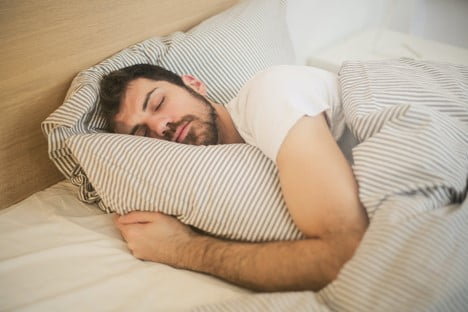A good night’s sleep is just as crucial as eating healthy and exercising regularly. It’s a proven fact that the quality of your sleep affects the way you think, perform, and regulate emotions.
Sleep deprivation can increase our risk of developing mental health problems. These can include anxiety, depression, and bipolar diseases — all of which can affect our sleep more negatively.
CFHP offers bipolar counselling services.
Fortunately, there are ways to improve your sleep pattern and breakout from this unhealthy cycle. Try these proven tips to get better sleep at night and subsequently, a healthy state of mind.
Increase Your Light Exposure
We all have a natural clock in our bodies known as the circadian rhythm. This directly affects our sleep pattern, helping our bodies to stay awake and deciding when it’s time for us to sleep.
To keep your circadian rhythm functioning the right way, get as much light exposure during the day. Research suggests that 2 hours of daytime light exposure increased sleep efficiency by 80%.
Reduce Blue Light Exposure at Night
While daylight exposure has numerous benefits, blue light exposure at night does the exact opposite. Light in the evening reduces melatonin, a hormone responsible for relaxation and good sleep. This will keep you from falling asleep, no matter how tired and exhausted you are that day.
Electronic gadgets such as smartphones and computers increase your exposure to blue light. So to improve the quality of your sleep, avoid using these devices before you go to bed.
Refrain from Drinking Coffee
This one is pretty obvious. While we enjoy a dose of caffeine to energise our bodies during the day, we certainly don’t want the same effect before we go to sleep.
According to one research, drinking coffee up to six hours before going to bed negatively affected sleep quality. But if you can’t let go of your coffee habits, try decaffeinated coffee instead.
Organise Your Sleep Environment
Surprisingly, the way you set up your bedroom affects the quality of your sleep as well. Try to remove distractions that can worsen your sleep pattern such as television, computers, video games, and the like.
Also, try to optimise your room’s temperature to get a more comfortable sleep experience. Noise cancellation is also a proven factor that can better your sleep quality. Try to make your room as quiet as possible, and you’ll see immediate changes.
Don’t Eat Late at Night
Eating late in the evening has adverse effects on your sleep. This is because late evening meals decrease the release of melatonin which, as discussed earlier, helps our body relax at night.
The type of food you take also plays a vital role in your sleep quality. While one research suggests that high carb meals allow for a better sleep experience, consuming too much food at night can lead to poor sleep and hormone disturbance.
Conclusion
Sleep and mental health are strongly related — sleep deprivation can negatively affect your mental health while poor mental health decreases the quality of your sleep. However, if you’re still struggling to get a healthy amount of sleep after following these pro sleeping tips, it’s time to seek help from the professionals.
At CFHP, we’re always ready to lend a helping hand so you can improve the quality of your sleep and mental wellbeing. Get in touch with us today to get support and assistance from our friendly team.




